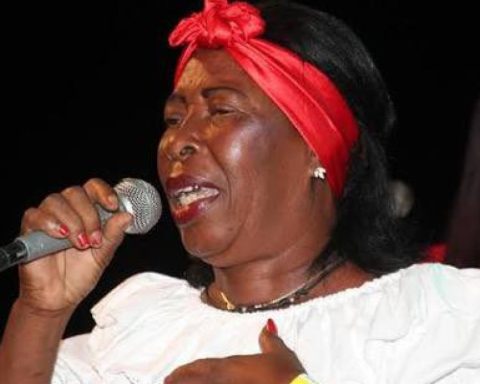Some observers have wanted to see in the apostolic letter of Pope Francis, motu proprio (of his own initiative) “Ad charisma tuendum”, a “degradation” or broadside against Opus Dei, the institution founded by Saint Josemaría Escrivá de Balaguer in 1928 and elevated to the rank of personal prelature by Pope John Paul II in 1982, through the Apostolic Constitution “Ut sit”.
Nothing further from that appreciation. Pope Francis’ decision does not strip Opus Dei of its character as a personal prelature, it simply places it under the supervision of the Congregation for the Clergy and no longer under that of the Bishops, indicating that the “Work of God” must give greater emphasis to the charism inherited from its founder and not to its hierarchical position within the church.
But the motu proprio in no way modifies the regime of the prelature or its relationship with the local bishops, the only difference is that now, Opus Dei will have a more punctual marking, and instead of submitting the report of its apostolic work every five years, it will do so annually and before the Congregation for the Clergy.
“This Motu Proprio aims to confirm the Prelature of Opus Dei in the authentically charismatic sphere of the Church… a form of government based more on charisma than on hierarchical authority is necessary,” Francis’ document reads.
This papal decree is part of a broader reform promulgated by Pope Francis on March 19, 2022, on the feast of Saint Joseph, to “update the service of the Roman Curia to the church and the world”: “Praedicate Evangelium “.
For those who have followed Bergoglio’s pontificate, this decision should not be surprising, in line with his plan to imprint a less hierarchical and more missionary character on the Catholic Church, in keeping with the times and where the laity, especially women, occupy older spaces in decision-making bodies.
The Roman Curia integrates all the governing bodies of the Vatican State and the Catholic Church (generically called dicasteries), both for administrative, apostolic and doctrinal aspects. The Synod of Bishops, the Secretariat of State, the congregations, the dicasteries and the commissions and pontifical councils stand out in it, dominated until the arrival of Francisco to the pontifical throne by cardinals and bishops.
However, personal prelatures are a figure introduced in the 1960s by the Second Vatican Council to attend in an extraordinary way a specific pastoral mission in favor of certain social groups in a region or in various nations of the world, they are considered as dioceses without territory , do not depend on any bishop but directly on the authority of the Pope.
To date, since they were introduced into canon law, only Opus Dei has that rank, and until now it depended on the Congregation for Bishops. Father Marcial Maciel lobbied for years to get this rank for the Legion of Christ, but it was never granted.
Another consequence of the papal decree, along the lines of reinforcing the charismatic character of Opus Dei, is that the episcopal order is denied to its prelate. That is, he cannot be a bishop. However, he will retain the rank of Supernumerary Apostolic Prothonotary, not insignificant in the ecclesiastical hierarchy, he will be called monsignor and will be able to use the insignia of his title.
“…We intend to reinforce the conviction that, for the protection of the particular gift of the Spirit, a form of government based more on charism than on hierarchical authority is needed. Therefore, the Prelate will not be honored with the episcopal order”, specifies the apostolic letter.
This is where some raise their eyebrows, and infer that the Pope disdains the figure of the prelate of Opus Dei and blocks the path to the episcopate. But it was Monsignor Fernando Ocáriz himself, current head of the prelature and third successor of Saint Josemaría Escrivá de Balaguer, who exorcised the resentment in a letter to his flock: “The episcopal ordination of the prelate was not and is not necessary to direct Opus Dei ”.
In fact, of the four prelates who have directed the Work, only two have been bishops, Álvaro del Portillo and Javier Echeverría; however, the holy founder was not.
Now, the papal letter says that the prelate of Opus Dei will not be consecrated bishop, but not that a bishop cannot be elected prelate. Throughout its history, Opus Dei has had bishops in its ranks, there must currently be more than twenty in office throughout the world, the most recent being Monsignor Joseph M. Bonnemain, appointed bishop of Chur in Switzerland in 2021.
Of course, the bishops are subject to the authority of the pope and available to serve where he sends them. But in both civil and canon law, there is always room for exceptions.
For example, the Jesuits, at the express wish of their founder, Saint Ignatius of Loyola, formally renounce any ecclesiastical dignity, but since they are also subject to papal authority and are even the only religious order that makes a fourth vow of obedience to the supreme pontiff, there have been many “Companions of Jesus” who have held the position of bishops, the rank of cardinals, and today even one of them occupies the Chair of Saint Peter.
Those who want to see in the apostolic letter a manifestation of Pope Francis’ rancor against Opus Dei should not forget that it was he who beatified two of its members: Álvaro del Portillo and Guadalupe Ortiz de Landázuri.
The most interesting thing about the matter, in my opinion, is to understand the basic message that Pope Francis wanted to send to Opus Dei with this apostolic letter.
It is noteworthy that since Opus Dei is an institution where 98% of its members (90,000) in 68 nations of the world are consecrated or married laymen, that is, numeraries and supernumeraries, and only 2% belong to the clergy, they have placed it under the tutelage of the Congregation for the Clergy, and not, for example, under the Dicastery for the Laity, Family and Life, or under the Congregation for Institutes of Consecrated Life and Societies of Apostolic Life.
Because the function of the Congregation for the Clergy is specifically to attend to everything related to priests, seminaries, ordinations, dispensations, incardinations, stipends, health services and social security.
It is surprising that a Pope who has chosen to open doors to the laity in the Church reduces, in practice, Opus Dei to a priestly fraternity.
Or it could be that Pope Francis is launching an urgent call for a refounding of the Work, placing it ‘pro tempore’ in a very narrow field that the laymen and laywomen themselves are in charge of widening, propitiating an internal ‘aggiornamento’ like the one that detonated the Second Vatican Council, and which was, for many observers, the arrival of the “ecclesial spring”.
francisco.deanda@eleconomista.
Art, Ideas and People Editor
















